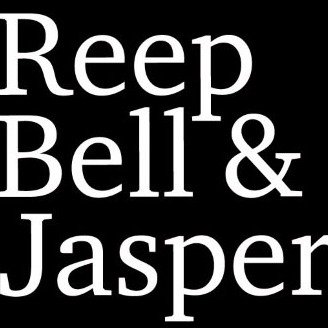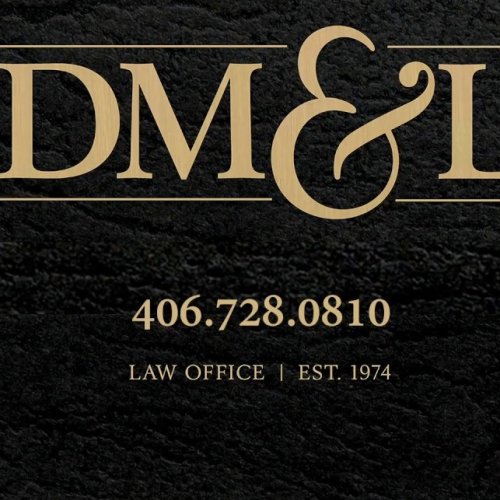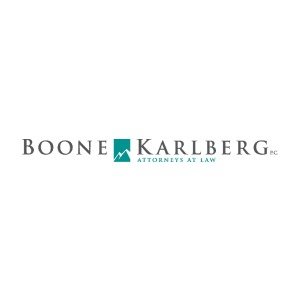Best Conveyancing Lawyers in Missoula
Share your needs with us, get contacted by law firms.
Free. Takes 2 min.
Free Guide to Hiring a Real Estate Lawyer
List of the best lawyers in Missoula, United States
About Conveyancing Law in Missoula, United States
Conveyancing refers to the legal process of transferring property ownership from one person or entity to another. In Missoula, United States, conveyancing is primarily associated with buying, selling, or gifting real estate. The process involves preparing, verifying, and filing various legal documents to ensure a smooth transfer of title, compliance with local regulations, and protection of all parties involved. Conveyancing is an essential part of most real estate transactions and is governed by both state and local laws, along with established best practices within the industry.
Why You May Need a Lawyer
There are many situations where professional legal advice is crucial in the conveyancing process. A lawyer experienced in conveyancing can help navigate complex property transactions, review and draft necessary documents, and ensure that all legal obligations are met. Common reasons to seek a conveyancing lawyer in Missoula include:
- Buying or selling residential or commercial property.
- Transferring ownership between family members or into a trust.
- Resolving disputes over property boundaries or titles.
- Managing the transfer of property as part of an estate or probate.
- Responding to liens, easements, or encumbrances discovered during the title search.
- Ensuring all local and state regulations are followed during the conveyance process.
Local Laws Overview
Conveyancing in Missoula operates under Montana state law, but local Missoula County regulations and procedures may also apply. Key aspects relevant to local conveyancing transactions include:
- Title searches and insurance: All property transactions typically require a thorough title search to uncover any claims or liens and confirm a clear title. Title insurance is highly recommended for both buyers and lenders.
- Deeds: The transfer of property must be executed through a legally valid deed, such as a warranty deed, quitclaim deed, or grant deed. The specific type of deed depends on the level of protection and warranties provided.
- Recording requirements: Deeds and certain other conveyancing documents must be recorded with the Missoula County Clerk and Recorder to be enforceable against third parties.
- Disclosure obligations: Sellers must comply with Montana’s property disclosure laws, providing buyers with information about known defects or certain property conditions.
- Tax considerations: Property taxes, transfer taxes, and any outstanding tax obligations must be addressed at closing. Montana does not impose a separate real estate transfer tax, but local taxes and fees may apply.
- Escrow services: Many transactions in Missoula are handled by escrow agents or attorneys who facilitate the safe transfer of funds and documents.
Frequently Asked Questions
What is conveyancing and why is it important?
Conveyancing is the legal process of transferring property ownership. It ensures the rights of all parties are protected, legal requirements are met, and financial interests are secured during a property transaction.
Do I need a lawyer for buying or selling property in Missoula?
While not legally required, hiring a lawyer is highly recommended to manage paperwork, perform title checks, prepare or review contracts, and avoid costly mistakes.
What documents are needed for property transfer?
Key documents include the deed, property disclosure forms, title report, settlement statement, and any relevant affidavits required by local authorities.
How long does the conveyancing process take in Missoula?
A typical transaction takes between 30 to 60 days from offer acceptance to closing, though this can vary depending on complexities such as financing, inspections, or issues uncovered during the title search.
What are common issues encountered during conveyancing?
Issues may include unclear property titles, liens, unpaid taxes, boundary disputes, errors in legal descriptions, and non-compliance with local regulations.
Who pays for conveyancing costs in Missoula?
Costs are usually negotiated between the buyer and seller. Typically, each party covers their own legal fees, while certain costs like title insurance and recording fees may be split or assigned per the purchase agreement.
What is a title search and why is it necessary?
A title search reviews public records to verify the seller’s legal right to transfer the property and to uncover any claims, liens, or encumbrances. It is essential to ensure the buyer receives a clear title.
Do I need title insurance in Montana?
Although not legally required, title insurance is strongly recommended. It protects against financial loss from title defects, undiscovered liens, or legal challenges after the sale.
Are there special requirements for transferring commercial property?
Commercial property transactions often involve additional complexities, such as zoning compliance, environmental assessments, due diligence, and specific financing arrangements. Legal advice is critical in these situations.
What happens if issues are discovered after closing?
If undisclosed defects or title problems arise post-closing, resolution depends on contract terms and applicable law. Legal remedies may include negotiation, mediation, or litigation.
Additional Resources
Several resources and organizations can assist those seeking information or support regarding conveyancing in Missoula:
- Missoula County Clerk and Recorder - for property records and deed recording.
- Montana Department of Revenue - for property tax questions.
- Montana State Bar - for lawyer referral services and legal information.
- Local title companies and escrow agents - for title search and closing services.
- Missoula Public Library - for consumer guides on real estate law and conveyancing procedures.
Next Steps
If you are considering buying, selling, or transferring property in Missoula, start by gathering all relevant documents, such as past deeds, property surveys, mortgage information, and any correspondence related to the transaction. Consult with a qualified conveyancing lawyer or real estate professional who understands local and state regulations. Schedule an initial consultation to discuss your needs and any potential issues. Your lawyer can help you review contracts, identify risks, guide you through the entire conveyancing process, and represent your interests from contract negotiation to closing.
Being well informed and working with experienced professionals will help ensure a smooth, legal, and efficient property transaction in Missoula.
Lawzana helps you find the best lawyers and law firms in Missoula through a curated and pre-screened list of qualified legal professionals. Our platform offers rankings and detailed profiles of attorneys and law firms, allowing you to compare based on practice areas, including Conveyancing, experience, and client feedback.
Each profile includes a description of the firm's areas of practice, client reviews, team members and partners, year of establishment, spoken languages, office locations, contact information, social media presence, and any published articles or resources. Most firms on our platform speak English and are experienced in both local and international legal matters.
Get a quote from top-rated law firms in Missoula, United States — quickly, securely, and without unnecessary hassle.
Disclaimer:
The information provided on this page is for general informational purposes only and does not constitute legal advice. While we strive to ensure the accuracy and relevance of the content, legal information may change over time, and interpretations of the law can vary. You should always consult with a qualified legal professional for advice specific to your situation.
We disclaim all liability for actions taken or not taken based on the content of this page. If you believe any information is incorrect or outdated, please contact us, and we will review and update it where appropriate.














